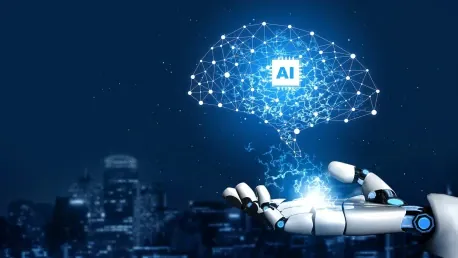The ability of artificial intelligence (AI) to transform the hospitality industry is becoming increasingly evident, promising not just a fleeting trend but a profound shift in how services are delivered and managed. This article captures the dual benefits AI brings to the table: elevating customer experiences and enhancing operational efficiency. It explores a fundamental change rather than a simple adoption of new tools.
Personalized Guest Services
One of the notable capabilities of AI is its potential to offer highly personalized guest services. Imagine a hotel where check-in procedures include tailored recommendations based on your preferences and previous stays, all facilitated by AI. Additionally, customized room settings, such as lighting, temperature, and entertainment options, can be adjusted automatically to match a guest’s unique tastes. These bespoke experiences are enabled through AI systems that analyze guest data to predict and cater to needs before requests are even made, thereby fostering stronger loyalty and encouraging repeat business.
Operational Efficiency
AI is also a game-changer when it comes to improving operational efficiency in the hospitality sector. AI-powered systems can streamline various aspects of hotel management, including logistics, supply chain management, staff scheduling, and energy usage. For example, AI-driven inventory management systems ensure that essential supplies are always in stock, and staff schedules can be optimized in real-time based on current demand levels. This not only reduces labor costs but also enhances the quality of service delivery. Robotic process automation (RPA) can handle mundane administrative tasks, freeing human staff to focus on more complex and customer-facing roles, thereby boosting overall job satisfaction.
Ethical and Practical Considerations
As the hospitality industry increasingly adopts AI, it is essential to strike a balance between leveraging technology and maintaining the human touch that defines excellent service. AI should complement human interaction rather than replace it, preserving the personal connections that guests value. Additionally, data privacy is a critical concern. Hospitality operators must ensure that guest information is safeguarded and that data protection regulations are strictly adhered to. Being transparent about data usage and allowing guests control over their information can go a long way in building trust between guests and operators.
Future Trends
Looking forward, the integration of AI in the hospitality industry is expected to deepen further. Emerging technologies like natural language processing, machine learning, and AI-driven predictive analytics are set to revolutionize this sector. For instance, real-time language translation powered by AI could significantly enhance the experience for international guests. AI-driven virtual reality (VR) and augmented reality (AR) experiences could enable potential guests to take immersive previews of hotel rooms and facilities before making a booking decision. These advancements signify a future where AI will play an integral role, making services more seamless and personalized.
Summary
In summary, embracing AI in the hospitality industry represents a comprehensive and transformative shift. The technology holds immense promise for enhancing both customer experiences and operational efficiency through personalized services and streamlined operations. Moving forward, the harmonious integration of AI with the indispensable human touch is expected to define the next era of hospitality excellence. This approach ensures that AI will not replace human interaction but rather augment it to meet the evolving demands of modern travelers.
Authorship
The ability of artificial intelligence (AI) to revolutionize the hospitality industry is becoming increasingly clear, signaling not merely a passing trend but a significant shift in how services are both delivered and managed. This article delves into the dual advantages AI offers: improving customer experiences and boosting operational efficiency. By integrating AI, the hospitality sector can provide more personalized and seamless experiences for guests, such as through chatbots for instant customer service or predictive analytics for tailored recommendations. At the operational level, AI can optimize staffing needs, streamline inventory management, and enhance maintenance routines by predicting potential issues before they become problematic. Rather than simply incorporating new technological tools, the industry is witnessing a fundamental transformation in its processes. This shift promises to elevate the overall guest experience and elevate the efficiency and effectiveness of hospitality operations, thereby setting a new standard for the future.









